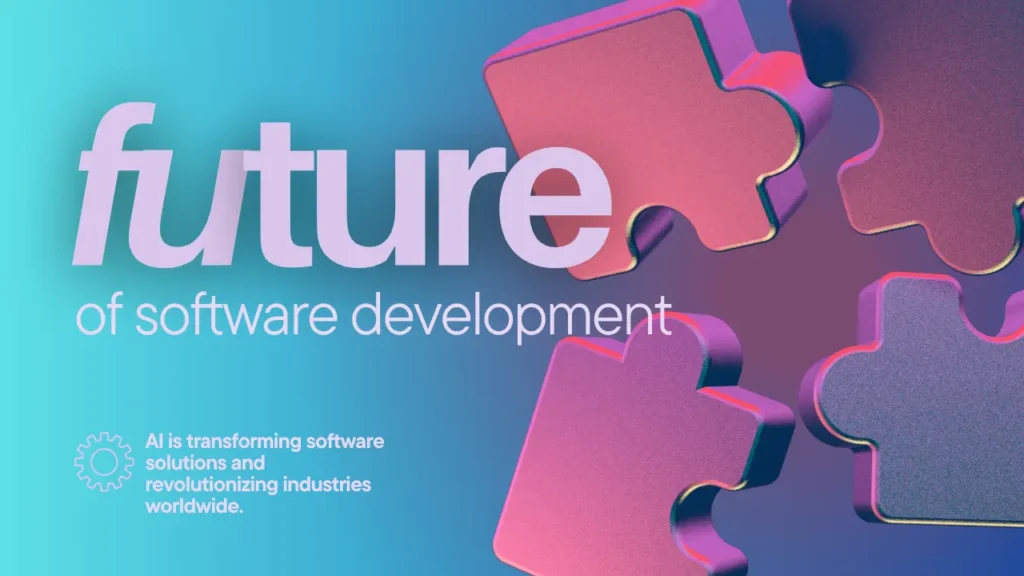Artificial intelligence (AI) is revolutionizing the software industry, transforming the way we interact with technology and reshaping the digital landscape. With its ability to analyze vast amounts of data, learn from patterns, and make intelligent decisions, AI is unlocking new possibilities and driving innovation across various sectors. In this article, we’ll explore how AI is transforming software development solutions and revolutionizing industries worldwide.

- Improved Efficiency and Productivity:
AI-powered software solutions are streamlining workflows and automating repetitive tasks, leading to significant gains in efficiency and productivity. According to a report by McKinsey, AI has the potential to automate up to 45% of work activities, freeing up human capital to focus on more strategic and creative endeavors. For example, AI-driven chatbots are revolutionizing customer service by handling routine inquiries and providing instant support, reducing response times and enhancing customer satisfaction.
- Enhanced Personalization and User Experience:
AI algorithms are enabling software developers to create more personalized and intuitive user experiences, tailored to the unique preferences and behaviors of individual users. By analyzing user data in real-time, AI-powered applications can deliver personalized recommendations, content, and services, increasing user engagement and retention. For instance, streaming platforms like Netflix leverage AI to analyze user viewing habits and suggest relevant content, leading to a 75% increase in user engagement.
- Advanced Data Analytics and Insights:
AI-driven analytics tools are unlocking valuable insights from complex datasets, enabling organizations to make data-driven decisions and gain a competitive edge. According to a study by IDC, AI and machine learning technologies are expected to contribute $2 trillion to global business value by 2024. By leveraging AI-powered analytics, businesses can identify trends, predict customer behavior, and optimize operations for maximum efficiency and profitability.
- Breakthroughs in Healthcare and Life Sciences:
In the healthcare and life sciences industries, AI is driving groundbreaking advancements in diagnosis, treatment, and drug discovery. AI algorithms are analyzing medical images, such as X-rays and MRIs, with greater accuracy and speed than human radiologists, leading to earlier detection of diseases and improved patient outcomes. Additionally, AI-powered drug discovery platforms are accelerating the development of new therapies and treatments, reducing time and costs associated with traditional drug development processes.
- Revolutionizing Finance and Banking:
AI is revolutionizing the finance and banking sectors, enabling institutions to automate routine tasks, detect fraudulent activities, and personalize customer experiences. According to a report by PwC, AI technologies are expected to contribute $1.2 trillion to the global banking sector by 2030. AI-driven chatbots are assisting customers with account inquiries and transactions, while machine learning algorithms are analyzing financial data to identify patterns and anomalies indicative of fraud.
Artificial intelligence is transforming software solutions across industries, driving efficiency, personalization, and innovation. With its ability to analyze data, automate tasks, and deliver actionable insights, AI is revolutionizing the way we interact with technology and reshaping the future of software development. As organizations continue to harness the power of AI, the possibilities for innovation and growth are limitless, paving the way for a smarter, more connected world.
